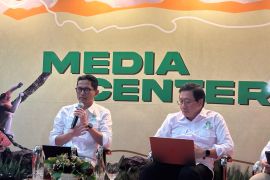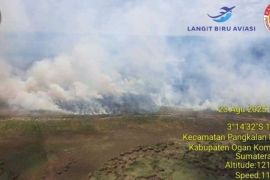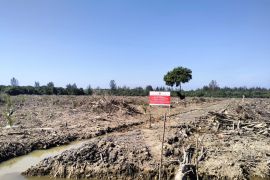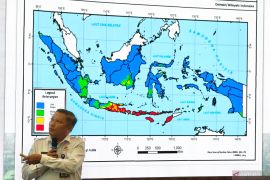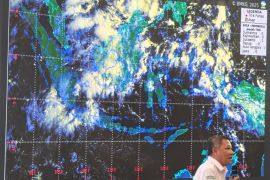"The forest damage has affected the ecological system and is threatening human beings` well being," Ria Saryanti, conservation program manager of Bird Indonesia said in a statement here Saturday.
Around 40 million Indonesian people depend on the forest resources (wood, rattan and firewood) directly, millions of others get benefit indirectly, according to her.
Sumatra and Kalimantan Islands are the worst-affected forest areas. Based on a study by Hansen and his colleagues (2009), around 70 percent of deforestation in Indonesia were concentrated on the two islands.
Since 1990, the low-land forest covers in Sumatra and Kalimantan have decreased up to 41 percent.
To commemorate Earth Day, Bird Indonesia (the Association of Indonesian Wild Bird Preservation), which is in partnership with England-based Global Birdlife International, has urged the Indonesian people to preserve forests.
"Preserving the forests mean taking care of the Earth and controlling the temperature which has been increasing since the past few decades," she said.
She further explained that by preserving the forests, living creatures, including human beings living inside the areas, are also being saved.
Forests are sources of food, medicines, housing materials and genes, according to her.
Almost a quarter of the world population rely on forests and 300 million live in forest areas throughout the world.
In the Climate and forest Conference 2010 in Oslo, Norway, it was disclosed that tropical forests can absorb up to 17 percent of gas emission globally and play important role in addressing the climate change.
Deforestation rate of tropical forests reaches 13 million hectares annually and threaten the survival of about 50 percent of bird species in the world.
"It`s no wonder that of 122 species on the brink of extinction in Indonesia, 12 species come from tribe Collumbidae, " she added.
Species of doves and pigeons which heavily rely on forests as their habitats are among other things forest pigeons (Columba sp.), uncal (Macropygia sp.), delimukan (Chalcopaps sp. and Gallicolumba sp.), pergam (Ducula sp.), and walik (Ptilinopus sp.). (*)
Editor: Aditia Maruli Radja
Copyright © ANTARA 2011
